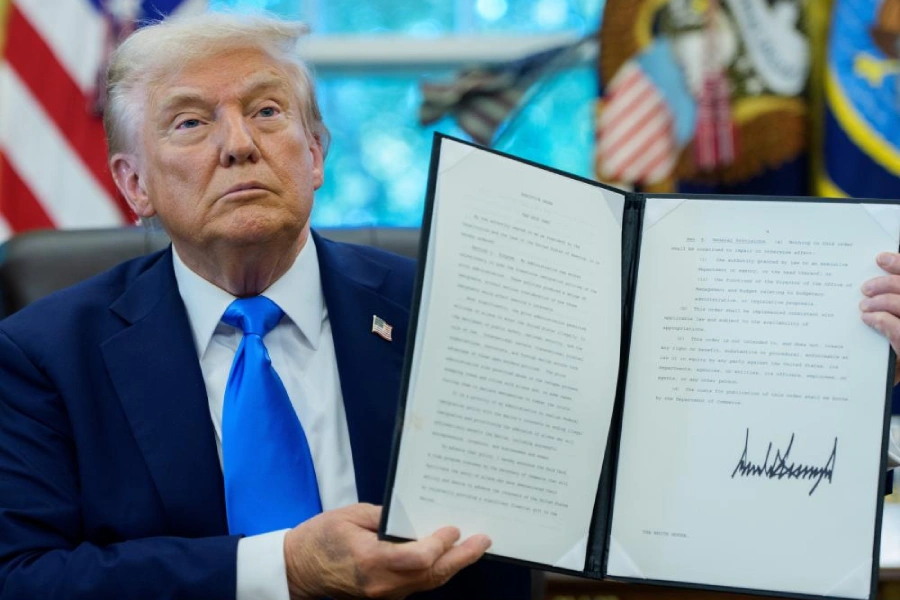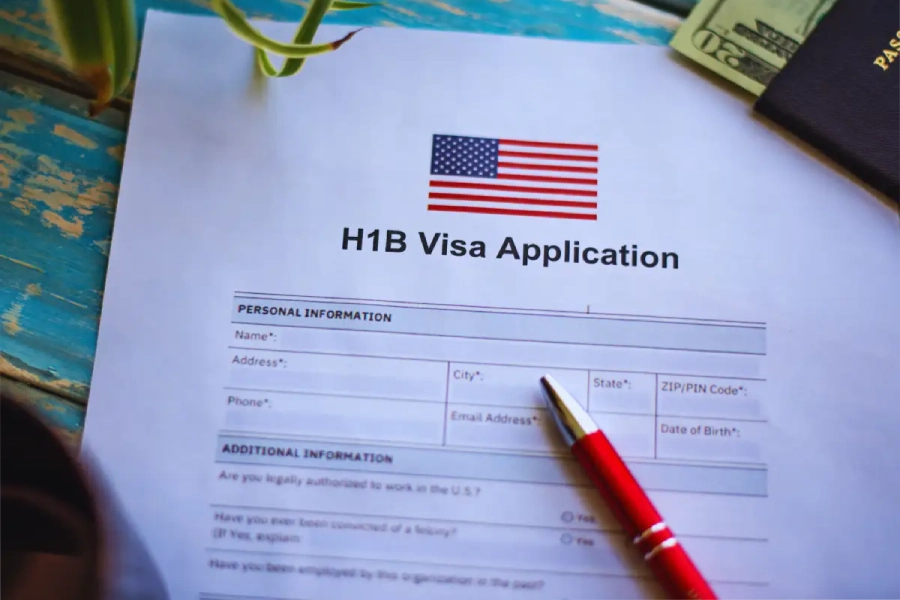America is once again at the center of global immigration and labor debates. The Trump administration’s latest move to impose a $100,000 annual fee per H-1B visa, combined with the launch of Project Firewall by the U.S. Department of Labor, aims to protect American jobs, enforce visa compliance, and prioritize domestic talent in highly skilled industries. This article examines the implications of these policies, legal perspectives, and the potential impact on America’s tech industry and workforce.

America’s New H-1B Visa Fee: What You Need to Know
The Trump administration announced a historic $100,000 annual fee for each H-1B visa. This measure targets employers sponsoring foreign skilled workers, primarily in tech, finance, and STEM fields. The move aims to ensure that American workers are given priority in high-skilled job opportunities and to deter companies from misusing the visa program.
Legal Perspective: Critics argue that Congress has not granted the executive branch authority to impose fees beyond application processing. Legal challenges may question whether this new fee oversteps statutory limits, potentially requiring judicial review.
Project Firewall: Safeguarding America’s Workforce
Project Firewall is a U.S. Department of Labor initiative designed to enforce H-1B compliance. Key features include:
-
Secretary-certified investigations into employers suspected of visa violations.
-
Recovery of back wages and penalties for companies exploiting the H-1B program.
-
Coordination with DOJ and EEOC to prevent discrimination against American workers.
-
Debarment of non-compliant employers from the H-1B program.
Legal Perspective: Project Firewall leverages existing federal law to investigate employers. It balances enforcement with due process, ensuring companies have the right to respond to allegations before penalties are applied.
Impact of H-1B Changes on America’s Tech Sector
America’s technology companies heavily rely on H-1B visas, particularly from India (71% of approvals) and China (11.7%). Amazon, Microsoft, and JPMorgan have already issued guidance for visa holders to remain in the U.S. or return before implementation. Experts warn that the new fee could:
-
Increase operational costs for companies, especially start-ups.
-
Slow innovation by discouraging global talent from relocating to America.
-
Affect America’s competitive edge in AI, software development, and STEM research.
Legal Perspective: Companies may need to reassess contracts, payroll, and compliance measures to align with both federal immigration law and new H-1B regulations, avoiding potential fines or debarment.
Who Will Be Most Affected in America?
-
Employers: Must budget for $100,000 per visa annually and maintain compliance with H-1B rules.
-
Employees: H-1B workers from India, China, and other countries may face travel restrictions or uncertainty.
-
Start-ups: High fees could disproportionately affect smaller companies, potentially reducing innovation.
-
States: California, Texas, New York, and New Jersey have the largest concentration of H-1B holders.
Timeline of Key H-1B and Project Firewall Initiatives in America
-
September 19, 2025: Project Firewall officially launched by the U.S. Department of Labor.
-
September 19-21, 2025: Trump administration announces $100,000 H-1B fee.
-
Late 2025: New H-1B visa fee and enforcement measures expected to take effect.
Legal and Compliance Considerations in America
-
Legality of the Fee: The fee may face judicial scrutiny, as it could exceed Congress’s authorization for visa cost recovery.
-
Employer Accountability: Companies are legally required to comply with H-1B regulations or risk fines, back pay claims, and program debarment.
-
Worker Rights: Project Firewall enforces protections for American workers, ensuring H-1B hiring does not displace domestic talent.
-
International Law Implications: Countries sending skilled workers may challenge the fee or take diplomatic notice if it restricts worker mobility.
Conclusion
America’s new H-1B visa fee and Project Firewall represent a significant policy shift aimed at protecting domestic talent while ensuring legal compliance among employers. The reforms are likely to impact America’s tech and STEM sectors, increase scrutiny of visa usage, and spark legal and political debates. While proponents argue these measures prioritize American workers, critics warn of potential negative effects on innovation, global talent attraction, and international competitiveness.
These developments underscore the complex balance between national workforce protection, legal authority, and the need for highly skilled global talent in America.
FAQ
Q1: What is the new H-1B visa fee in America?
A: $100,000 per year for each H-1B visa, targeting new applications.
Q2: Who will be affected by America’s new H-1B visa fee?
A: Employers sponsoring H-1B workers, skilled employees from India and China, and tech start-ups.
Q3: What is Project Firewall in America?
A: A U.S. Department of Labor initiative enforcing H-1B compliance to protect American workers.
Q4: Is the $100,000 H-1B fee legal in America?
A: Legal experts question its legality; Congress only authorized fees to recover application costs.
Q5: How will the H-1B fee impact America’s tech industry?
A: It may increase costs, slow innovation, and affect America’s competitive edge.
Q6: Are current H-1B visa holders affected?
A: No, only new or renewed visas are subject to the fee.
Q7: What should H-1B workers do now?
A: Consult immigration lawyers, avoid unnecessary international travel, and ensure full compliance.
Q8: Which states have the most H-1B visa holders in America?
A: California, Texas, New York, and New Jersey.
Q9: How will Project Firewall protect American workers?
A: By investigating violations, enforcing compliance, and penalizing non-compliant employers.
Q10: When will the new H-1B fee and enforcement measures take effect?
A: Expected in late 2025, pending official announcements.

